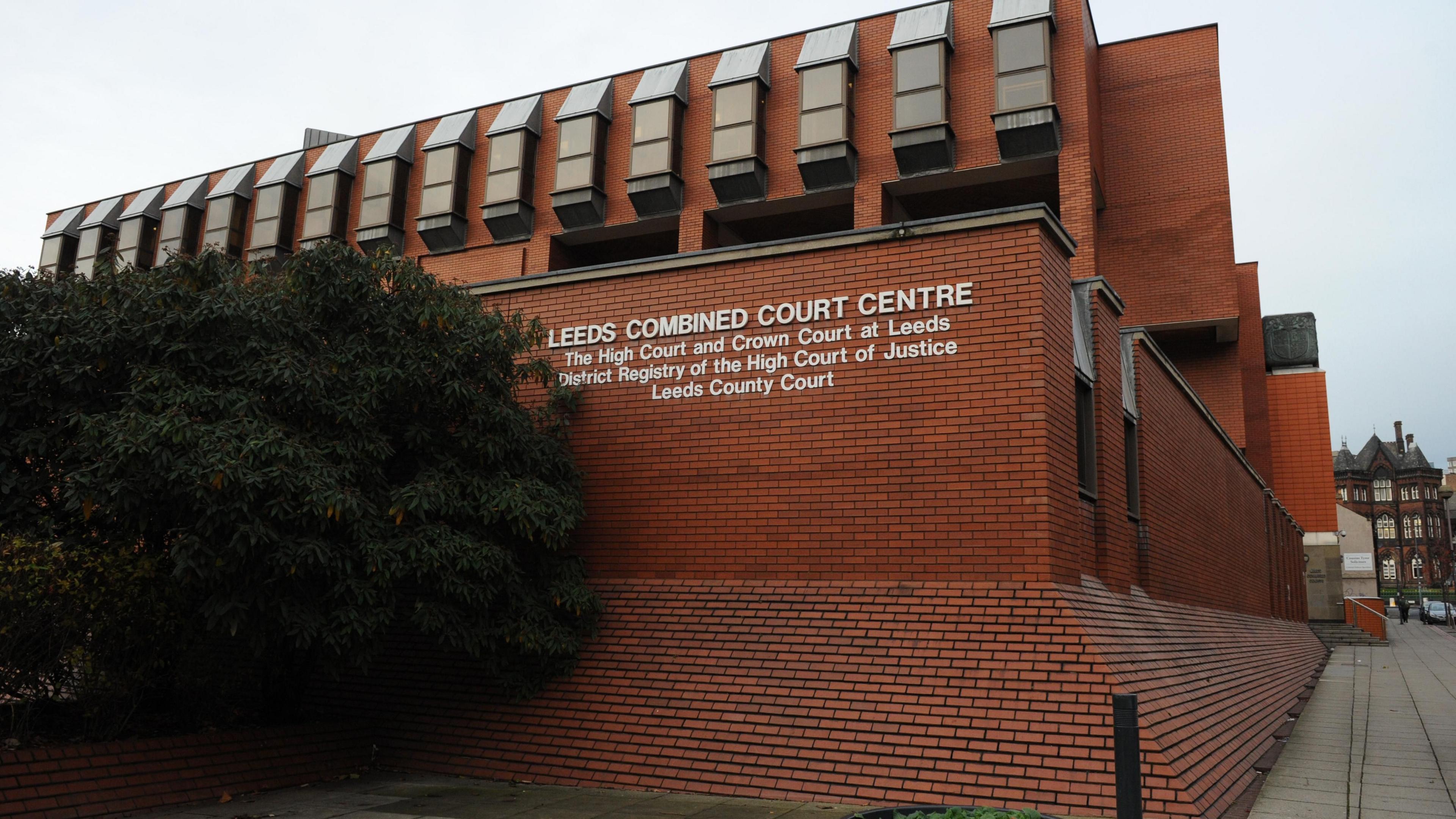Far-right extremist jailed for terror order breach

The defendant was jailed at Leeds Crown Court on Tuesday
- Published
A far-right extremist has been jailed for two years after breaching government measures for monitoring suspected terrorists.
The defendant, who can only be referred to as LXB, was subject to strict measures controlling his electronic communication in 2022 after being convicted of possessing material likely to be used for a terrorist purpose.
Leeds Crown Court heard he had also previously made threats to kill a Jewish MP, and had another conviction for making explosives.
The man, in his 20s, pleaded guilty to four counts of contravening a Tpim (Terrorism Prevention and Investigation Measures) order, which allows the authorities to monitor suspected terrorists who are not subject to criminal charges.
LXB is believed to have been the first suspected far-right extremist to be made subject to a Tpim since the powers were introduced in 2011, with all previous subjects being suspected Islamic extremists.
On Tuesday Judge Tom Bayliss KC sentenced LXB to two years in prison, with a further year on licence.
The court heard police attended his home in June last year after he tried to set up a bank account on a device that was not known to them.
During a search officers found a GoPro camera and a memory card which the defendant was not allowed to have without Home Office approval.
The memory card contained a video LXB appeared to have made trying to inform others of his Tpim and what it was like to live under one.
He was also found to have made hundreds of internet searches in breach of his restrictions, and deleted his internet history.
'Overly onerous'
The court heard he had used the search bar of the Guardian website to make Google searches to get around the blocking software that would have prevented the searches on his Home Office-approved laptop.
He was found to have made searches relating to Andrew Tate, the Bristol bus boycott and "the science of terrorism", the court was told.
In his police interview LXB said he was challenging the Tpim restrictions in the High Court, claiming they were "overly onerous" and "designed to cause me to breach the order and criminalise me".
He told officers he had received the camera for his birthday and attempted to notify the Home Office.
In mitigation, the court heard LXB was a "lonely, isolated person" and the Tpim order made it hard for him to form friendships.
Follow BBC Yorkshire on Facebook, external, X (formerly Twitter), external and Instagram, external. Send your story ideas to yorkslincs.news@bbc.co.uk, external.